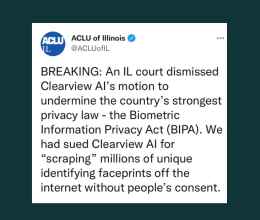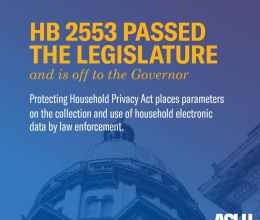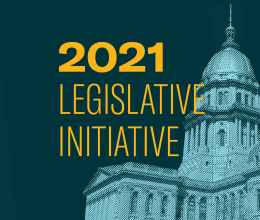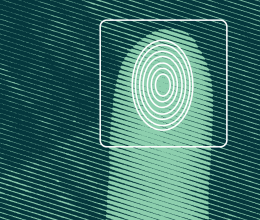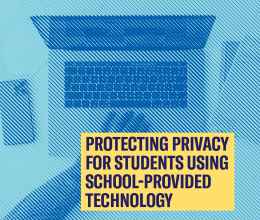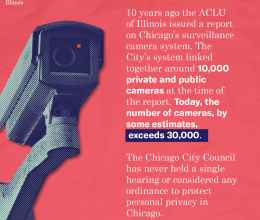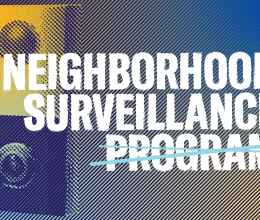
SPRINGFIELD – As the Surveillance Camera Data Collection Act (House Bill 1948) cleared the Illinois House floor on Friday, April 15, the ACLU of Illinois joins lawmakers in calling for transparency in the use of government surveillance cameras across Illinois. The measure passed the Illinois House by a vote of 110 to 0.
House Bill 1948 would require police agencies that own or have access to video surveillance cameras to disclose to the Illinois Criminal Justice Information Authority the number of their cameras, and their privacy regulations, if they have any. It would also require the Authority to post this information on its website. The bill would extend to outdoor cameras (except for traffic cameras), and to mass transit cameras. The law does not seek information about the location of any cameras.
This bill, sponsored by Representative Naomi Jakobsson, Representative Chapin Rose, Representative Barbara Flynn Currie, Representative Monique Davis and Representative Dwight Kay, would provide the public with critical information about video surveillance cameras in Illinois. Government transparency about the number of cameras would allow the public to make important town-to-town and year-to-year comparisons.
Dozens of government agencies across Illinois have installed thousands of video surveillance cameras in recent years, but very little information about these cameras has been released to the public.
“This measure is about transparency,” said Representative Naomi Jakobsson of Champaign. “Government agencies should tell residents how many surveillance cameras are present in the community and what protections are in place to insure personal privacy.”
For example, over the past few years, the City of Chicago has developed and deployed the most extensive and integrated system of surveillance cameras in the United States, according to a former Homeland Security Secretary. In Chicago, surveillance cameras contain a number of technological features -- including zoom capacity, automatic tracking and facial recognition -- that makes them more powerful and potentially invasive.
The number, integration and technological sophistication of these cameras raise serious civil liberties concerns, including invasion of privacy, chilling of free speech, voyeurism, and discriminatory targeting. The ACLU of Illinois recently released the first independent, comprehensive report of the City's surveillance camera system, calling for Chicago to adopt significant new safeguards to protect privacy.
The ACLU also called for a moratorium on the placement of new surveillance cameras in the City until a full review of the program and adoption of privacy protections has been completed.
“The expansion of government surveillance cameras in Illinois raises profound questions about all of our privacy and other civil liberties,” said Adam Schwartz, senior staff counsel at the ACLU of Illinois. “The transparency provided by this bill will begin to answer those questions.”
